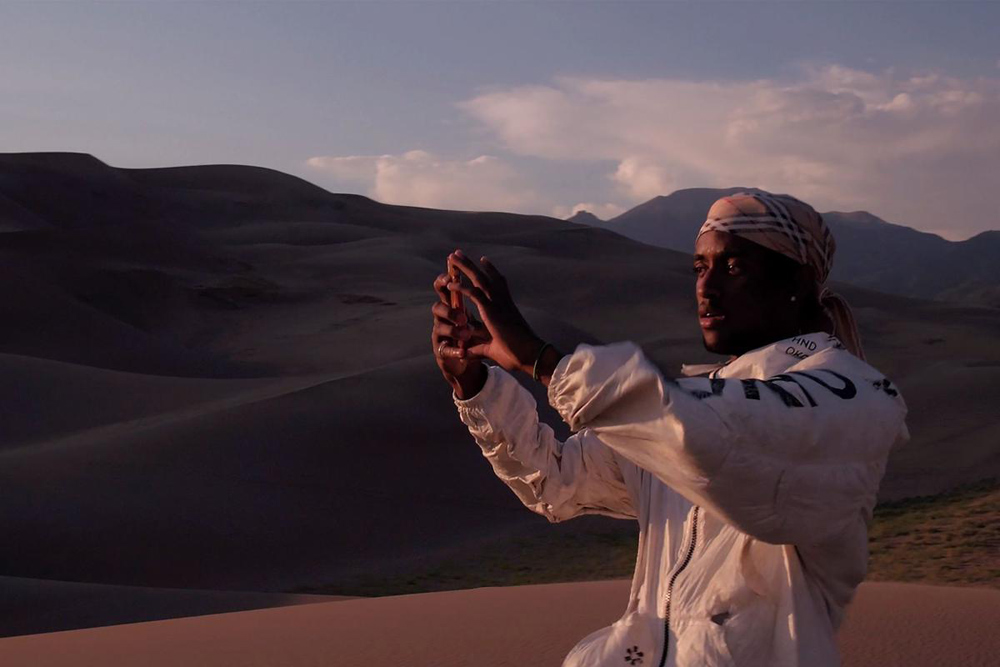Marnie Ellen Hertzler went to high school with many of the subjects in “Crestone,” which is likely the only way the director could’ve known of their whereabouts off the grid in the middle of empty acreage in Colorado. Appearing about as far away from proper society as you can get, they still have both enough electricity and internet access to keep a lifeline to the outside world, necessary for lamps for their marijuana grow room and posting rap videos to Facebook. Their leader Sloppy, who has a fondness for facial tattoos like Post Malone, has created a haven where time ceases to exist, though he’s of a generation that has learned the ability to carefully tailor reality to their liking online, both in how they present to the world and what information they receive, so Hertzler happens upon the fascinating moment when Sloppy attempts to approach actual reality in the same way, operating without outside influence to control their own destiny.
Actually, “happens upon” may not be an appropriate description when Hertzler makes clear how she is manipulating reality herself as a filmmaker in what is one of the most fascinating intersections between form and content I can remember since Charlie Kaufman and Spike Jonze fucked with it in “Adaptation.” The director appears onscreen a couple times in “Crestone,” but makes her presence known throughout it, supplying wry narration that reminds of Ross McElwee’s running commentary in “Sherman’s March” bringing any lofty ideas that either her subjects have for themselves or that her work of committing them to cinema down to earth. After allowing Sloppy to step into the voice of God role for what seems to be a vision quest while he’s high, she introduces Ben, the drone operator (and music producer) that captured accompanying images from the sky to demystify the process and offers up deadpan descriptions of the young men living inside the house who get tattoos when they’re bored and make bologna sandwiches to subsist on.
By making clear the parameters of what she’s filming in a seemingly limitless form, she draws a fascinating parallel between her own limitations of recreating an experience and those that ultimately govern Sloppy’s experiment, but more intriguingly, Hertzler’s cinematic flourishes of turning each time the rappers record in their makeshift studio into effects-filled music videos without overtly distinguishing them as such or following them into landscapes that are only available to most as part of a movie (or an Instagram snap from an exotic vacay) spark a provocative reconsideration of a medium’s ability to transport as having the potential to isolate. When staying exclusively in the company of these outsiders, you begin to realize that rather than the world growing closer as a result of societal and technological advances, it’s grown into tinier and tinier bubbles, which once coupled with the wildfires in the area that could push the guys to evacuate (of course, only if they cared enough to do so) create a unique opportunity for Hertzler to sharply articulate the often elusive feeling of existential dread among millennials, and the director has the good sense to serve this up with a healthy amount of humor that comes from those that have given up the fight and find it best to fend for themselves. Although she laments at one point that “creativity can be a denial of reality” as she sees Sloppy and friends flounder in becoming listless in a sea of possibilities, in the case of “Crestone,” it can also be a revelator like no other.
“Crestone” will screen at the True/False Festival on March 8th at 7:30 pm at the Willy Wilson at the Ragtag.




